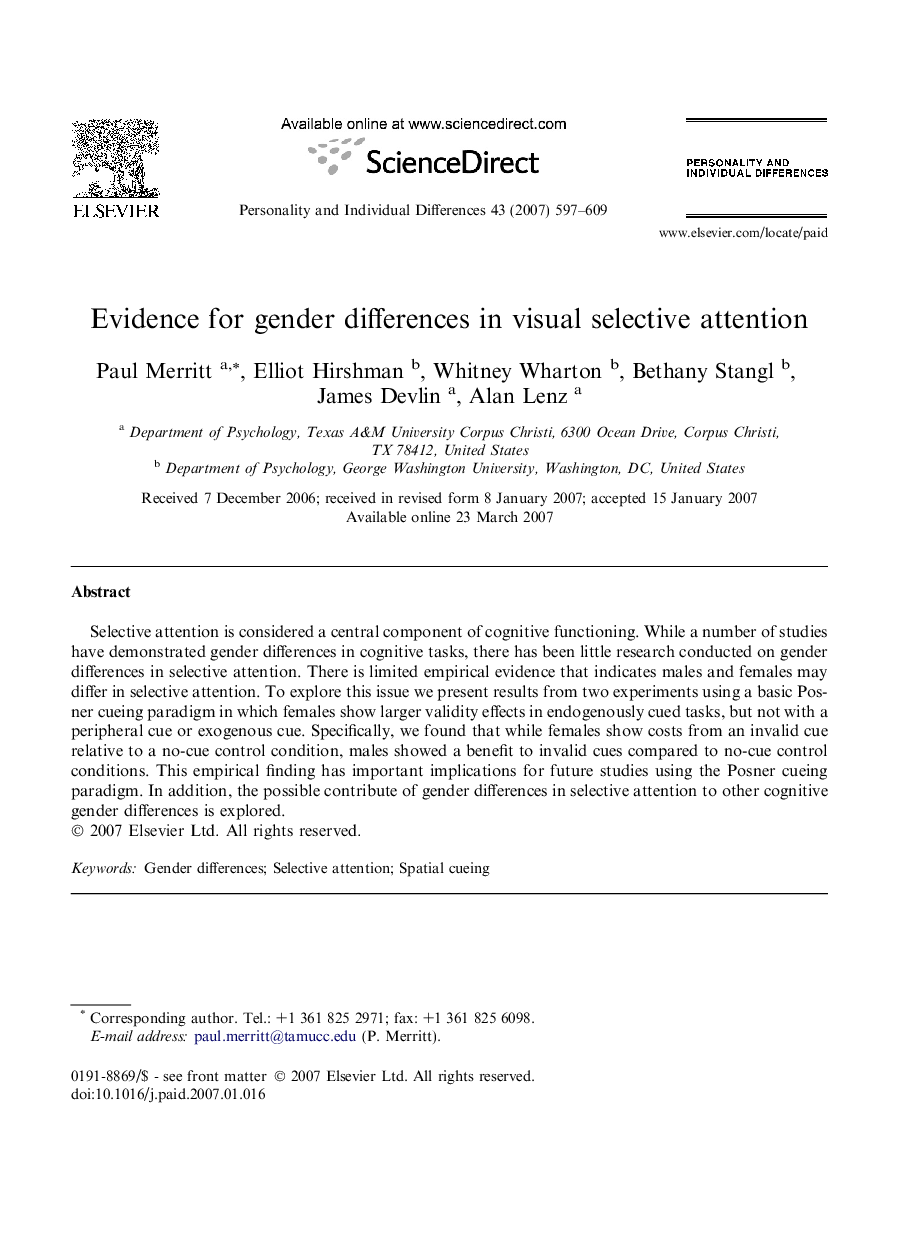| Article ID | Journal | Published Year | Pages | File Type |
|---|---|---|---|---|
| 892622 | Personality and Individual Differences | 2007 | 13 Pages |
Selective attention is considered a central component of cognitive functioning. While a number of studies have demonstrated gender differences in cognitive tasks, there has been little research conducted on gender differences in selective attention. There is limited empirical evidence that indicates males and females may differ in selective attention. To explore this issue we present results from two experiments using a basic Posner cueing paradigm in which females show larger validity effects in endogenously cued tasks, but not with a peripheral cue or exogenous cue. Specifically, we found that while females show costs from an invalid cue relative to a no-cue control condition, males showed a benefit to invalid cues compared to no-cue control conditions. This empirical finding has important implications for future studies using the Posner cueing paradigm. In addition, the possible contribute of gender differences in selective attention to other cognitive gender differences is explored.
